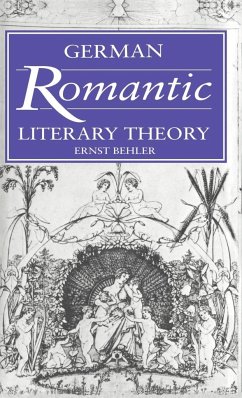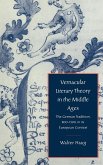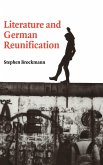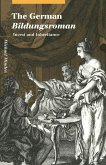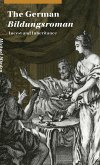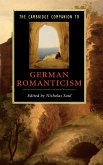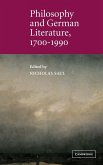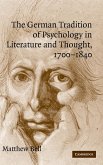The emergence of a new theory of literature in the German Romantic period constituted a decisive turning point in the history of criticism. Prepared by new trends in critical thought during the latter half of the eighteenth century, a view of the literary work and the artistic process developed which diverged sharply from the dominant classicist understanding of aesthetics and poetics. It recognised the infinite changeability of genres, their constant mingling, and the frequent emergence of new literary forms, and asserted the rights of genius and creative imagination. It was also characterised by its intimate connection with the prevailing philosophy of its time, transcendental idealism. Professor Behler provides a new account of this crucial movement, illustrating each theoretical topic with close reference to a characteristic work by a major writer of the period.
Table of contents:
Preface; List of abbreviations; Chronology of early Romanticism; Introduction; 1. Formation and main representatives of early Romanticism in Germany; 2. Poetry in the early Romantic theory of the Schlegel brothers; 3. The theory of Romantic poetry; 4. Novalis and the mystical dimension of early Romantic theory; 5. Wackenroder's and Tieck's conceptions of painting and music; 6. Theory of language, hermeneutics, and encyclopaedistics; 7. Conclusion: early German Romanticism and literary modernity; Notes; Bibliography; Index of works cited; Index of subjects and names.
Professor Behler provides a view of the literary work and the artistic process developed in the German Romantic period - a decisive and crucial turning point in the history of criticism. It recognised the infinite changeability of genres, and asserted the rights of genius and creative imagination. This work illustrates each theoretical topic with close reference to a characteristic work by a major writer of the period.
Professor Behler provides a view of the literary work and the artistic process developed in the German Romantic period.
Hinweis: Dieser Artikel kann nur an eine deutsche Lieferadresse ausgeliefert werden.
Table of contents:
Preface; List of abbreviations; Chronology of early Romanticism; Introduction; 1. Formation and main representatives of early Romanticism in Germany; 2. Poetry in the early Romantic theory of the Schlegel brothers; 3. The theory of Romantic poetry; 4. Novalis and the mystical dimension of early Romantic theory; 5. Wackenroder's and Tieck's conceptions of painting and music; 6. Theory of language, hermeneutics, and encyclopaedistics; 7. Conclusion: early German Romanticism and literary modernity; Notes; Bibliography; Index of works cited; Index of subjects and names.
Professor Behler provides a view of the literary work and the artistic process developed in the German Romantic period - a decisive and crucial turning point in the history of criticism. It recognised the infinite changeability of genres, and asserted the rights of genius and creative imagination. This work illustrates each theoretical topic with close reference to a characteristic work by a major writer of the period.
Professor Behler provides a view of the literary work and the artistic process developed in the German Romantic period.
Hinweis: Dieser Artikel kann nur an eine deutsche Lieferadresse ausgeliefert werden.

